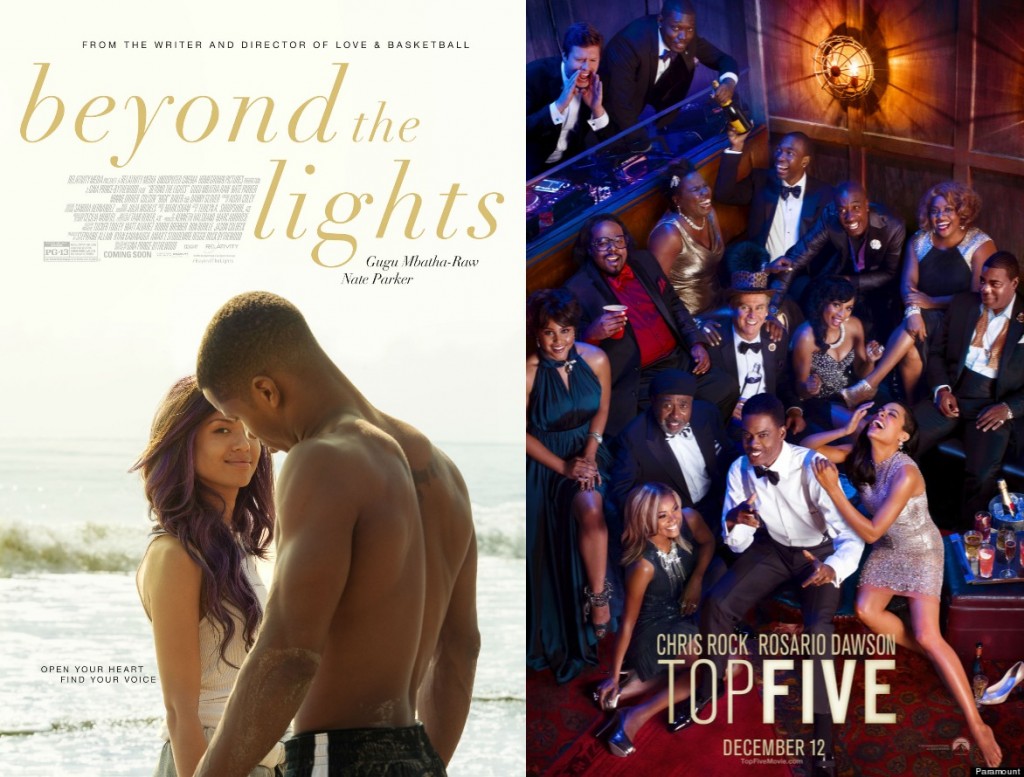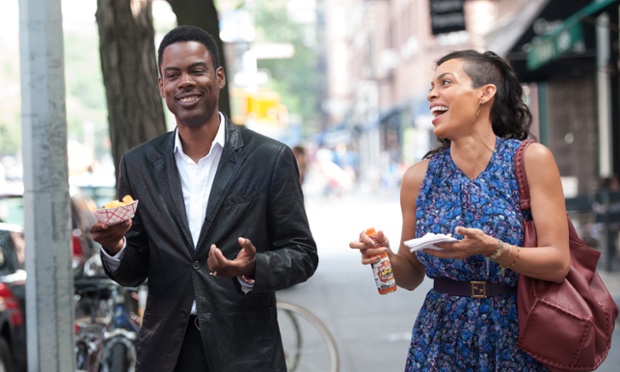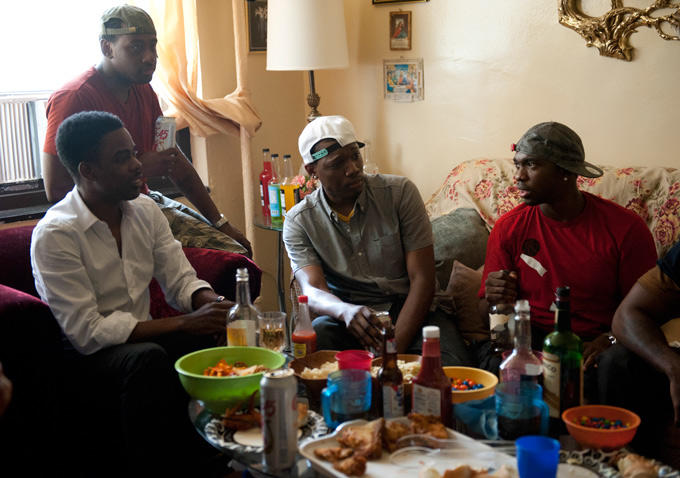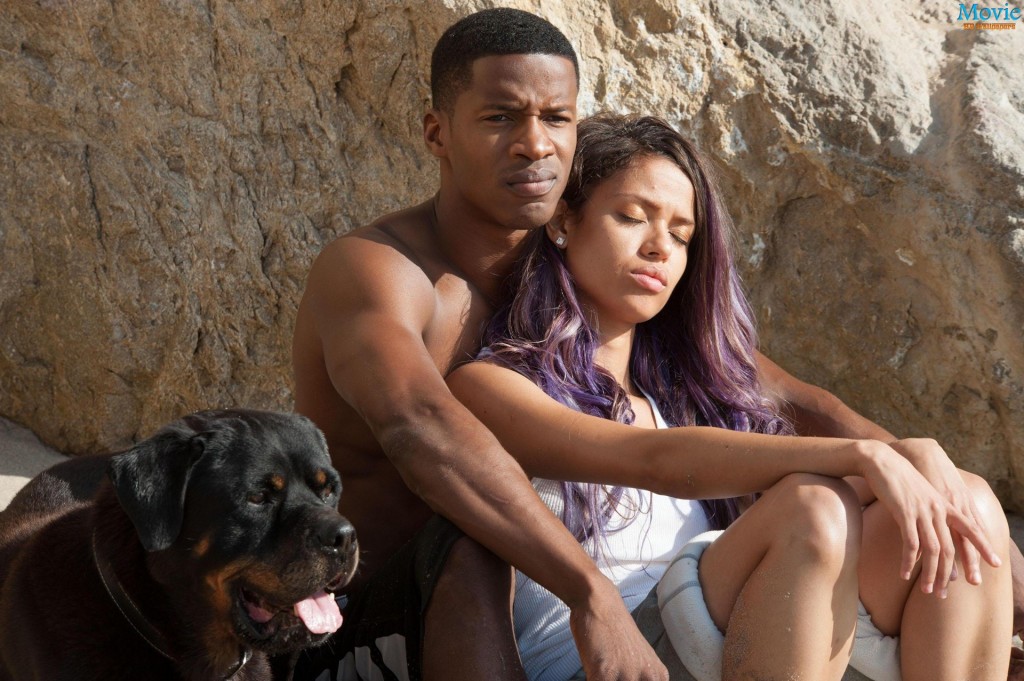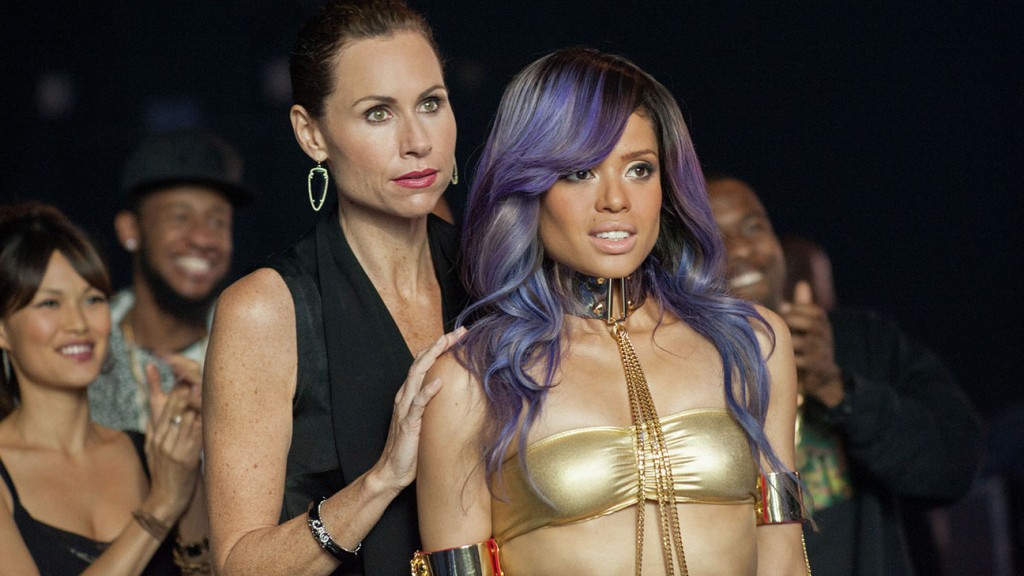Diversity and representation have long been a serious issue in the film industry, and 12 Years A Slave winning some Oscars hasn’t exactly changed that. Outside of that prestigious anomaly, people rarely imagine black film to be much more than gangster movies, cookout comedies, and Tyler Perry. Our very own Dominic Griffin will prove otherwise, shedding a light on unsung, underrated, forgotten and new films that show the breadth and versatility of the black voice in film. Named after one of Billy Dee Williams’ affectionate nicknames, this is Dark Gable Presents…
I started this column to try to play pop culture archaeologist, excavating unsung works in the black cinema canon and filling in gaps in my own personal viewing history. It’s been a hard year to be brown in America, and maybe because of that, it became difficult for me to work my way through the tentative watch list I’d made. Just the act of thinking and writing about race became somewhat difficult, given how frustrating and heartbreaking race relations have been as of late. Something has changed for me, though. D’Angelo returned with his first album in fourteen years. Kendrick Lamar took his opportunity as Stephen Colbert’s last musical guest to give us another glimpse into his self love themed next album. Ava DuVernay became the first black woman in history to be up for the Best Director Golden Globe.
To quote Sean “Highfather Ciroc” Combs, “Black is back. Go get a suntan, bitch.”
Over the last week, I saw two very beautiful, very special films created by and predominantly starring black artists, and it just felt right to end the year with a look at both of them.
Chris Rock has been promoting the ever-loving shit out of his latest film, Top Five, by engaging in some of the funniest, most honest interviews of his career. He’s at the height of his charm, dropping verbal gems and quotables with apparent ease. The godly press tour seems ironic, given the subject of his film, in which Rock plays Andre Allen, a comedian promoting a serious film about a Haitian slave rebellion the week of his wedding to a reality TV star (Gabrielle Union). The film takes place over the course of a day and primarily focuses on one longform interview conducted by Chelsea Brown (the always excellent Rosario Dawson). Andre doesn’t want to do comedy anymore and nobody in the world cares about his artistic progression.. With his film tanking at the box office, his engagement feeling more like a publicity stunt than true love, and a beguiling new woman probing him for honesty, the film becomes a clever rumination on fame, life, and love. The entire affair is filled with long take walk and talks, hilarious structure-breaching flashback gags, and a lot more emotional honesty than you’re probably expecting based on the marketing material. To put it bluntly, Chris Rock made a black Woody Allen film.
Except not really. Woody is a big influence on Rock’s work here, no doubt, but so is Eric Rohmer, whose excellent Chloe In The Afternoon formed the basis of Rock’s last (criminally underrated) directorial effort, I Think I Love My Wife. Here, however, he’s really grown as a visual stylist. I’m not saying he brought in Vilmos Zsigmond to lens the damn thing, but he creates a really unique and engaging take on the talky, intellectual New York film, largely aided by his decision to shoot the movie in scope, using wide static shots, teeming to the brim with life. A lot of films that expect you to be enraptured by two people talking for two hours really have a hard time keeping those interactions cinematic, but Rock ensures that every time we’re focused on the principal characters or their interactions, the background of the frame is still populated by living people continuing to act out their lives and not just as hapless extras.
This is particularly important in how the film consistently expresses Andre’s frustration with being famous for being funny. Every new location our protagonist arrives at is audibly punctuated by a passerby shouting “Hammy,” the name of the policeman bear Rock’s character played in three popular films. The movie cinematically shows you everything you need to know about his suffocating professional life without telling it to you in a pandering manner. This storytelling device gives a strong sense of continuity, too, as running gags, such as JB Smoove’s character’s attraction to big girls, continue to appear on the outskirts of the frame, whether or not explicit attention is being given to them. That “open world’ feel goes a long way to making this slightly alternative New York City breathe.
Rock also one ups Woody in the performance category. He may be playing a version of himself, as Woody often did, but here he has the guts (and the acting ability) to create an on-screen avatar who is difficult and complex and never one-note. Andre Allen is obnoxious and frustrating at times, but ultimately lovable and someone you want to root for. The entire cast is a real delight as well. A cursory glance at the IMDB page will net you more than a handful of “as himself”s but those surprise cameos (that I won’t do you the disservice of spoiling here) serve useful functions in the story. Every turn in the film is stellar, from Cedric The Entertainer’s amazing turn as lovable schemer Jazzy Dee to Anders Holm as Chelsea’s butt play-loving boyfriend. Gabrielle Union takes one throwaway scene, pleading with Andre on the phone about their impending marriage, and turns it into a grand treatise on reality television culture. My only complaint is we didn’t spend more time with Kevin Hart as Andre’s agent, or focus more on Andre’s friendship with Smoove’s Silk.
What’s fantastic about Top Five is the sense of variety. I don’t mean it’s like Hee Haw. It gives a real breadth of human life. It’s not a one-note comedy. The burgeoning romance between Andre and Chelsea feels real and on it’s own would make a perfectly functioning romantic comedy. The radio promotion montages accurately skewering the media would have made fine satire on their own. The darker material, dealing with Andre’s alcoholism, could anchor it’s own film as well. It’s that this narrative exists at the intersection of all of these topics and themes that makes it truly stand out. It presents a view of black life that truly runs the gamut, lovingly tethered throughout the film by the titular refrain of characters debating over their top five MCs of all time. I know on paper it sounds reductive to say the movie depicts black life as one long argument about rap music, but it’s more than that. The dialogue is a prompt that opens a window to so many different perspectives and experiences.
Also, it’s hilarious. It’s genuinely as laugh-out-loud funny as it is cathartic and satisfying. An all-star, predominantly black cast in a well-crafted, emotionally resonant comedy. That’s a nice change of pace.
Beyond The Lights is a different ballgame. For one, it maintains a far more serious tone, despite covering similar territory, re: shining a light on the darker side of fame’s glitz and glamour. Love & Basketball helmer Gina Prince-Blythewood’s first film in six years tells the tale of two star-crossed lovers against the backdrop of modern pop music. Gugu Mbatha-Raw (who you might recognize from this year’s Belle, or, knowing the Deadshirt audience, as Martha Jones’ sister from the third series of Doctor Who) plays our lead, Noni Jean, a burgeoning pop starlet in a label-persuaded relationship with rapper Kid Culprit (Machine Gun Kelly, as a slightly off-kilter version of himself). After winning her first Billboard award, she drowns herself in a bottle of champagne and attempts to commit suicide by going over the balcony of her hotel room. Kaz Nicol (Nate Parker), an off-duty police officer working security for her team, saves her life.
It’s the meet cute of all meet cutes, shot with a sense of earnestness that, coupled with Mbatha-Raw and Parker’s palpable chemistry, helps to temper the somewhat melodramatic nature of the of film’s premise. This sets in motion a romance that is expertly structured, from a storytelling perspective. In a romantic film, you don’t need to work all that hard to get people to believe two characters can fall for one another, especially if the actors are suitably talented or attractive in some way. The film is made or broken by the filmmakers’ ability to keep them apart, constantly setting up roadblocks to their happily ever after until just the right moment, delivering a foregone conclusion in the guise of a pleasant surprise. Beyond The Lights is good at a great many things, but above all else, it functions like a really good wrestling match, hitting you with near-fall after near-fall until someone is finally down for the count. Nora Ephron would be proud.
The scene that really sold me is actual the prologue that precedes the aforementioned meet cute, featuring a young Noni and her mother, played with a sterling lack of charm by Minnie Driver. She takes her daughter to a black beauty salon that’s closed for the night, and has to beg the stylist there to help her with her, as Noni has a talent show the next day and Driver, a single white mother, can’t figure out how to do her hair. It’s a striking scene, followed by Noni hauntingly performing Nina Simone’s “Blackbird” and coming in second place at the talent show. Her mother makes her throw the award out, because she didn’t come in first. This little tragedy is immediately juxtaposed with footage from the video Noni wins her first Billboard for, a disturbing approximation of pretty much every Rihanna video ever, only more tortured, stripped of Rih Rih’s signature sense of ownership, of agency. That throughline, from a mother unloved by the world forcing her daughter up on a stage, is the tragedy that leads to the film’s initial hook.
On the surface, again, that nearly Lifetime Movie sense of melodrama kicks in, but it’s highly effective as performed by the film’s very capable and understated cast. If presented with tonedeaf histrionics, this could be something you eat Ben & Jerry’s straight from the pint to, a wine-infused hate watch on VH1, but here, Prince-Blythewood has crafted a sincere look at the struggles of identity and how our relationships with our parents affect our futures. Love interest Kaz, like Noni, is on a path crafted for him by his father, played by Danny Glover, who wants him to go into politics. Nate Parker is incredible as the male lead, performing with a conviction and an intensity that immediately sells you on who Kaz is as a person without needing a whole lot of unnecessary exposition. Unlike Noni, his father’s steering hand is less draconian. There’s a self confidence that’s been instilled in him that Noni is drawn to, if for no reason other than her being deprived of such a quality her whole life.
The white mother/black daughter narrative is just one part of the complex puzzle that forms a minefield around Noni’s career. She hides her natural hair between multi-colored wigs. When she’s at photoshoots and a photographer wants to see more skin, her mother approves, rather than stepping in to protect her when she needs it most. The shots taken at the music industry and the world-building at play relies on as many real world cameos as Top Five does, even if those cameos are less entertaining or glamorous. (For instance, Big Sean has a small scene with Noni that feels real and sweet in a way, but every moment Archduke Fuccboi Don Lemon is on screen is pretty frustrating.) It all paints a stark, unsettling picture of the pop industry. The sexualization and the exhaustion are displayed with a ferocity that makes it easy to see why Noni gets whisked away by hero cop Kaz.
There’s a sickening sequence set at the BET Awards that visually expresses this best, an incendiary fire starter of a set piece. Noni has just broken up with Kid Culprit, but they’re set to perform together regardless. Kid seems fine with this at first, until his realization that he’s been left for Kaz on stage is timed to occur as Noni changes up their rehearsed dance routine, namely her refusal to take off a trench coat and reveal herself in little more than lingerie. Incensed, Kid Culprit begins to humiliate her, essentially raping her on stage in front of a live audience who, by nature of the previous sexual element of their act, assume it’s all fun and games. I can’t think of a scene more stunningly realized in its horror, and I saw the weird spider stuff in Enemy.
The film also handles Noni’s battle with depression and suicide admirably, never sidelining its concerns with mental wellness in service of the romance plot. Their growing relationship is centered around his willingness and dedication to help her get better. I also love that Kaz isn’t really written as this shining white knight, either. He’s not some magic man who solves all of her problems. He’s just the first to acknowledge what she’s going through, listen, and support her while she finds herself. Noni’s arc from manipulated pop starlet to confident, self loving musician is a beautiful one. That she (spoiler alert) gets the boy she wants in the end is an added bonus.
Both of these films are so impressive and feel so vital. Beyond The Lights has been out since November, so it’s time at your local box office is already drawing to a close, but Top Five opens on more screens this weekend. If either is playing in your town, even if it’s a bit of a drive, make the effort to support them. Vote with your moviegoing dollars.
If you have any films you would like to see covered in this column, hit us up on Twitter @DeadshirtDotNet and we’ll get them in front of Dom.

